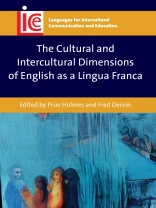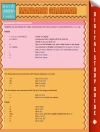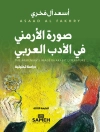This book investigates the cultural and intercultural aspects of English as a Lingua Franca (ELF). Authors discuss how ‘culture’ and the ‘intercultural’ can be understood, theorised and operationalised in ELF, and how the concepts can be integrated into formats of ELF-oriented learning and teaching. The various cultural connotations are also discussed (ideological, political, religious and historical) and whether it is possible to use and/or teach a lingua franca as if it were culturally neutral. The chapters consider the communication and pedagogical implications of the cultural and intercultural dimensions of ELF and offer suggestions for new directions in ELF research, pedagogy and curriculum development.
İçerik tablosu
Acknowledgments
Contributors
Introduction
Part I: The Interconnections and Inter-relationships between Interculturality and ELF
1. Karen Risager: Lingua Francas in a World of Migrations
2. Richard Fay, Nicos Sifakis and Vally Lytra: Interculturalities of English as a Lingua Franca: International Communication and Multicultural Awareness in the Greek Context
3. Will Baker: Culture and Language in Intercultural Communication, English as a Lingua Franca and English Language Teaching: Points of Convergence and Conflict
Part II: Grounding Conceptual Understandings of Interculturality in ELF Communication
4. Chris Jenks: Talking Cultural Identities into Being in ELF Interactions: An Investigation of International Postgraduate Students in the United Kingdom
5. Anne Kari Bjørge: Conflict Talk and ELF Communities of Practice
6. Jagdish Kaur: Intercultural Misunderstanding Revisited: Cultural Difference as a (Non) Source of Misunderstanding in ELF Communication
7. Tiina Räisänen: Finnish Engineers’ Trajectories of Socialization into Global Working Life: From Language Learners to BELF Users and the Emergence of A Finnish Way of Speaking English
8. Eric Henry: The Local Purposes of a Global Language: English as Intracultural Communicative Medium in China
Part III: Commentary
John O’Regan: Intercultural Communication and the Possibility of English as a Lingua Franca
Yazar hakkında
Fred Dervin is Professor of Multicultural Education at the University of Helsinki (Finland). He is Director of the TENSION research group (diversities and interculturality in education). Dervin also holds several distinguished and visiting professorships in Australia, Canada, China, Luxembourg, Malaysia and Sweden. Prof. Dervin specializes in intercultural education, the sociology of multiculturalism and student and academic mobility. He has widely published in different languages on identity, the “intercultural” and mobility/migration (over 150 articles and 60 books). His latest books include (all 2022): Fragments in Interculturality: A Reflexive Approach (Springer); Supercriticality and Interculturality (with Tan, Springer); Interculturality in Teacher Education (Cambridge University Press).












